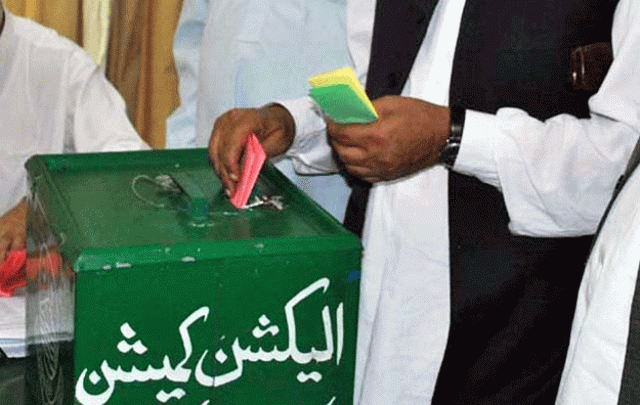Cantonment elections: A guided democracy?
The good news is that polling will be held in 42 Cantonment Boards and their 199 wards

The good news is that polling will be held in 42 Cantonment Boards and their 199 wards
Important administrative as well as political activities that should actually be contributing for the development and growth of the institutions have unnecessarily been shelved by the successive governments and the 17 years stalemate where no local bodies elections were held in the cantonment boards is demonstrative of a sluggish and ‘at leisure’ political mentality and mindset that prevails in our country.
At the heart of matter in the cantonment board elections is the kind of representation it entails. Any cantonment board comprises 25 members of whom 12 are elected civilians and 12 are selected (nominated) civilian and military officers with the Station Commander acting as the President who enjoys the veto power. The structure of any Cantonment Board is designed to be military-friendly and thus elections which should actually be representing democracy and thus subjecting the devolution of power and control in the hands of the people are actually only a formality. The balance of power in these boards has an inherent military tilt and no matter how fair and free elections are held those that are elected to become the members of the board are in competition and at odds with the chosen (nominated) members of the board. At worst the complete board and its recommendations and consensus might turn to naught if the Station Commander chooses to veto them. Is it then wrong to say that the local bodies elections in Cantonment Boards continue to represent a ‘military guided and constituted’ democracy?
The permanent military stations that we call Cantonments today are not the British created garrisons that used to house the troops and their military and civilian facilities. They have expanded and grown over a period of time to include significant civilian population as well as their interests. The Cantonment Act, 1924 is considered a landmark act as it introduced local bodies system because of which people’s representatives could become members of the board. But is it only the presence of the members in the board that should be viewed as a landmark achievement or their empowerment and ability to address the concerns of the growing civilian population that look up to them for providing them the essential services and addressing their complaints in their local body constituency? It is no rocket science to understand that most civilian complaints are directed against the excesses committed by the military and the board itself is so military biased that the decision-making is always subjected to the military influence. After all we are dealing here with the prime land and even a small piece of land when sold brings in huge dividends to the shareholders.
The separate identity that the Cantonment Boards carry is the legacy of the ‘Gora Sahab’. Even today elders in the family refer to the railway tracks and the bridges that they constructed and which still continue to serve us. We may be poor and lack of funds may be a reason for not putting up anything better than what ‘Gora Sahab’ did for us but are we intellectually also so poor that we cannot change and amend the Gora introduced acts that do not go with the conditions that exist on ground today? All Cantonments come under the Federal Government whereas the devolution of power means that it is the provinces that should be empowered. Should then the Cantonments be federally represented? Take the example of the Karachi Cantonment. If, hypothetically speaking, a majority of the members from PML-N win elections will they be focusing on the development and providing services to the people of the ward from where they were elected? Or will the development in the Cantonment be uniform? After all the devolution of power means the availability of funds at the grass root level and if the member finds himself constrained what service is he going to provide to the people through the local body that he represents?
Another important aspect of the Cantonment Boards is that majority of area under these boards falls in the rural areas called wards (constituencies) from where members are elected. Most of these members are neither sufficiently educated nor have the slightest clue about the huge development schemes/works or the budgetary allocations of such work that are centrally undertaken by the big Cantonments like Karachi, Lahore and Islamabad.
Another mindboggling aspect of the current local body’s elections being held in the Cantonments is that though the concept of these elections is similar to the local body’s elections yet the local bodies elections are not being held while the elections in the Cantonment Boards are being held all across the country. As a part of devolution process the funds are transferred from the MNAs to the MPAs and then to the local bodies. How will the system run if we have the cart but not the horse? Holding party based (candidates are representing political parties) cantonment board elections without the local body’s elections being held country wide is only likely to create a political void.
The good news is that polling will be held in 42 Cantonment Boards and their 199 wards. Though the elections being held are not on party basis yet the candidates are being supported by the political parties and this yet again after the by-elections in NA-246 gives the opportunity to the politicians to claim their party’s popularity at the grass root level when the results of the elections are finally announced on April 28.
(The writer is a retired lieutenant colonel of the Pakistan Army and is currently pursuing PhD in civil-military relations from the University of Karachi)
Published in The Express Tribune, April 25th, 2015.



















COMMENTS
Comments are moderated and generally will be posted if they are on-topic and not abusive.
For more information, please see our Comments FAQ